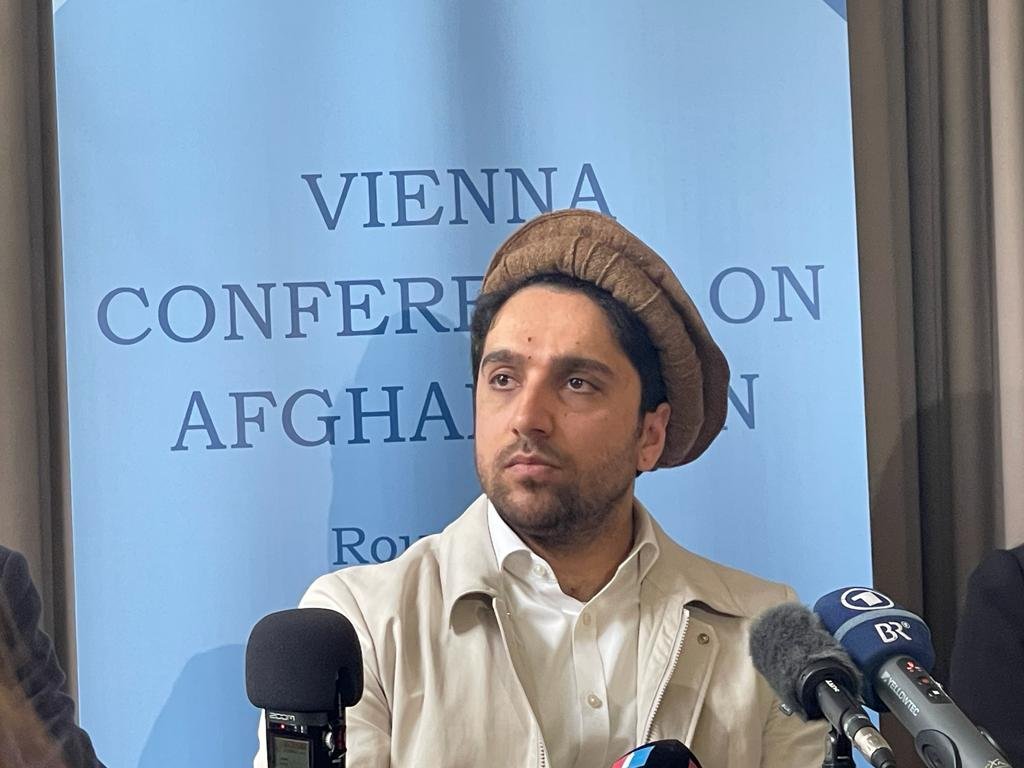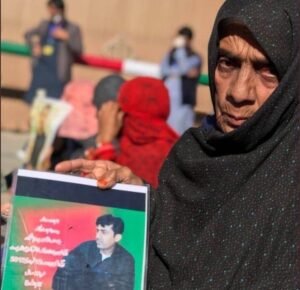Anti-Taliban Leader Coordinate Political Support and Resist Taliban Monopoly

Ahmad Massoud, during a press conference in Vienna on the 26th of April 2023. Photo: @Ali Ahmad
By Ali Ahmad
Between April 24 & 26, more than two dozen Afghan political figures, activists, and women’s rights advocates attended the Afghanistan Vienna conference for the second time to coordinate and mobilize political support in Europe as well as to reaffirm their position among the Afghan diaspora. The prominent figure leading the delegation of politicians in exilehas been the son of a former warlord who also led the resistance against the Taliban in the 1990s. Massoud has been calling for international support to fight against the Taliban’s recent takeover of Afghanistan. He has also expressed willingness to engage in peace talks with the Taliban if they agree to a power-sharing agreement.
The conference’s first two days were held in secret; however, on the third day, civil society and outside actors were welcome to engage in conversation with conference attendees. This decision was made to ensure that the participants had enough time to discuss and deliberate on sensitive issues before opening up to external actors. It also provided an opportunity for civil society particularly women’s rights defenders to contribute their perspectives and feedback on the discussions.
During a press conference to address a number of issues related to the Vienna meeting as well as a peace roadmap for Afghanistan, Massoud explained that NRF emerged as a result of the Taliban’s violence, refusal to engage in dialogue, and the decision to wage war against the Afghan people. The roadmap has not yet been completed. He also provided an update on the successes of his NRF and the likelihood of holding peace negotiations with the Taliban.
Afghans have harshly criticized the NRF in recent months for the lack of cohesion among its members, for being accused of corruption, and for failing to make any military gains in Afghanistan. Massoud, however, criticized the hypocrisy of the West for only supporting the Afghan people while they were inside Afghanistan and then withdrawing that support once they left.
Massoud admonished Europe that the Taliban do not represent the Afghan people because “they came to power through barrels of guns.” The Taliban have not changed their behavior toward dialogue or forming a legitimate government since taking power in August 2021. Massoud claims that the Taliban have been difficult to deal with and have violated the United Nations Charter.
Massoud’s statement highlights the challenges of negotiating with the Taliban and the importance of holding them accountable for their actions. It remains to be seen if the Taliban will make any significant changes in their approach to governance and international relations after the UN meeting in Doha on May 1.
Even though Massoud acknowledged the decades of assistance that the international community has given Afghanistan, he insisted that ultimately it is “up to the Afghan people to determine their own future.” Massoud emphasized that any assistance should be determined by the aspirations and dreams of the Afghan people. He also highlighted the importance of empowering Afghan women and youth to play a significant role in shaping the country’s future. Massoud believes that the involvement of the Afghan people is crucial for building a prosperous and peaceful Afghanistan.
Engaging with the Taliban
Ahmad Massoud is aware of the need for Afghanistan’s neighbors to engage with the Taliban on a tactical level because the Taliban uses “hostage tactics” to intimidate them with the help of terrorist organizations that it has allowed to operate in Afghanistan. He warned that engagement with the Taliban must be avoided from a strategic standpoint. Only a legitimate government, not the Taliban, can represent Afghanistan.
Massoud’s statement suggests that recognizing the Taliban as a legitimate government would undermine the sovereignty of Afghanistan and could lead to further instability in the region. Therefore, it is important for international actors to support the establishment of a stable and democratic government in Afghanistan that represents all its citizens.
Massoud cautioned that recognizing the Taliban would be a terrible decision on the eve of the UN meeting on Afghanistan on May 1 in Doha. Any decision that results in the Taliban being recognized by UN members will be “a nail in the freedom and democracy of the people of Afghanistan.” He predicted that the Afghan people would lose their last vestiges of hope and respect for the international community. The ongoing uncertainty and lack of progress in forming a stable government and improving living conditions have only reinforced this bleak outlook. Without significant changes, the situation in Afghanistan may continue to deteriorate, further eroding the trust and faith of its people in the global community.
Ali Ahmad is a Vienna-based researcher focusing on migration and diaspora studies.
Note: The contents of the article are of sole responsibility of the author. Afghan Diaspora Network will not be responsible for any inaccurate or incorrect statement in the articles.











